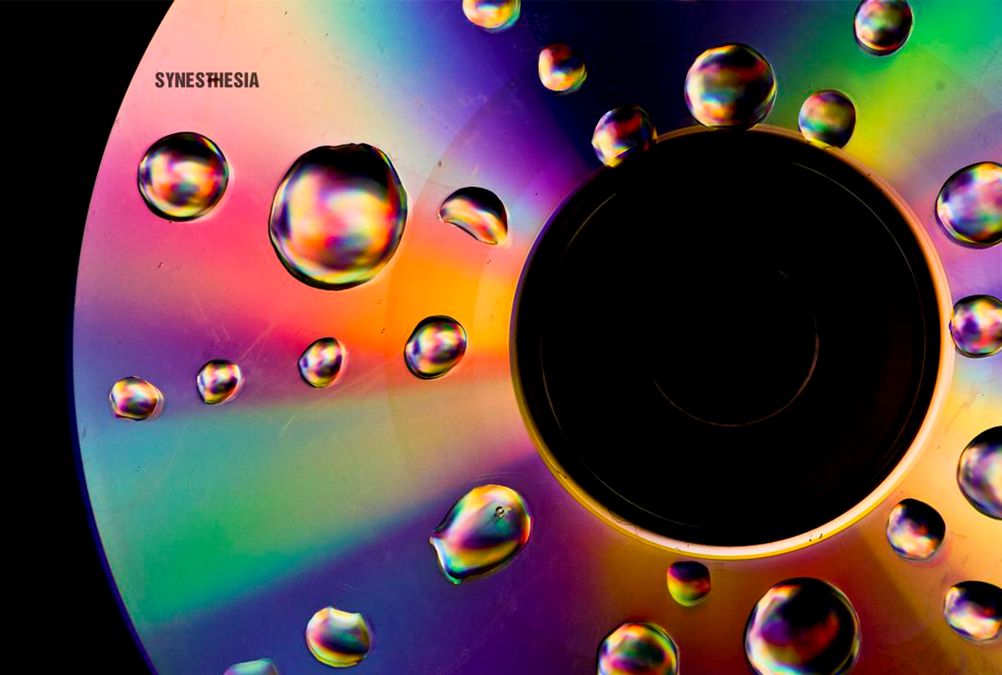
With the ability to hear what you see feels like a superpower, within the ranks of X-ray imaginative and prescient or telepathy. Nevertheless it’s not fairly as far-fetched — some individuals actually can hear silent transferring photos. The truth is, a research printed within the June 2018 concern of the journal Cortex exhibits that as much as 1 in 5 individuals may have the flexibility.
Visible-evoked auditory response, or vEAR, is the involuntary and constant expertise of getting an "auditory sensation [that] happens in time with visible change over time, brought on by movement of sudden flashes," because the research authors outline it. In different phrases, sure silent however dynamic movies and GIFs, like those beneath, set off imaginary noises in individuals with vEAR.
Earlier analysis has proven that the phenomenon is a type of synesthesia, the place the stimulation of 1 sensory or cognitive pathway routinely provokes the stimulation of one other. As an illustration, individuals with chromesthesia, or sound-to-color synesthesia, understand particular coloration associations when listening to music. However total, little is thought about vEAR. So the researchers at Metropolis, College of London aimed to be taught extra about its prevalence, the sorts of movies that immediate it and the traits which will predict an individual’s susceptibility to it.
To do that, they created a web-based survey that offered 24 brief, silent movies to contributors primarily from North America, Western Europe and the UK. Some movies depicted easy movement, like an individual screaming or a tennis ball bouncing on a racket, whereas others had been extra summary, like twinkling dots colliding with one another. After watching every video, contributors had been requested to fee whether or not they’d skilled any auditory sensation on a scale from zero to 5, with 5 representing "very vivid and particular auditory sensation." Of the 4,128 individuals who accomplished the survey, 1,058 additionally answered questions on their traits, together with "Do you endure from tinnitus?" and "Do you ever hear music in your head?"
The researchers discovered {that a} shocking variety of respondents — 12 p.c — recognized as synesthetes, and 21 p.c had been "beforehand conscious of experiencing auditory sensations accompanying visible motion." Contemplating solely 2 to 4 p.c of the inhabitants reportedly are synesthetes, these numbers are unusually excessive. This is perhaps as a result of connections between sound and visible occasions are discovered extra in nature than different synesthetic associations, such because the relation of numbers and letters with colours. The research authors additionally found that the individuals who had been beforehand conscious of experiencing vEAR had been extra prone to say they’d tinnitus, noticed sound-evoked flashes of sunshine when in the dead of night or falling asleep, heard music of their head and skilled synesthetic associations.
Members recognized essentially the most auditory sensation when viewing silent movies that urged real-world sounds, like an individual screaming. However summary movies with excessive movement vitality, like swirling lights, additionally evoked sound responses in individuals who had been already conscious of vEAR. These outcomes counsel that vEAR might be a type of cognitive affiliation, triggered when viewing a well-known occasion that we anticipate to provide a sure sound. Nevertheless it is also a real type of synesthesia that does not rely upon the mind making acquainted audiovisual connections.
"We expect that these sensations might generally mirror leakage of data from visible components of the mind into areas which might be extra normally dedicated to listening to," stated Dr. Elliot Freeman in a press launch.
The excessive prevalence of vEAR opens up extra avenues for researching synesthesia and associated phenomena. However till then, there’s a complete Reddit discussion board you’ll be able to peruse to see if you happen to’ve bought a "visible ear" — simply strive to not get misplaced within the noise.
Now That is Fascinating
Talking of getting misplaced within the noise, ever turned down the radio while you had been misplaced whereas driving? That is as a result of now we have to tune out one sensory enter to have the ability to focus higher on one other. It is a matter of neural effectivity — the mind has to eradicate the work of listening to the radio to pay extra consideration to discovering the best way.






















